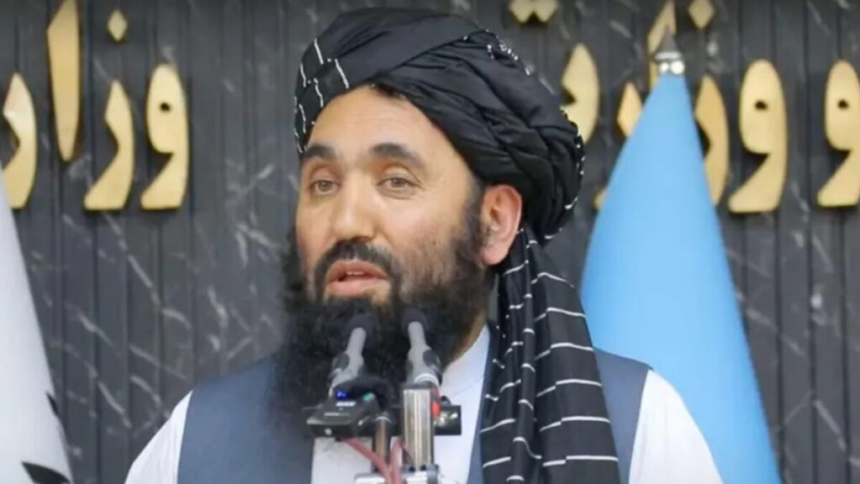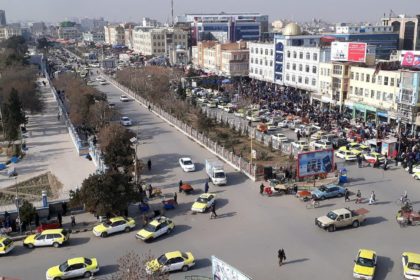RASC News Agency: In a move that underscores the Taliban’s alarming double standards and growing diplomatic hostility toward Pakistan, Mullah Rahmatullah Najib, the Taliban’s Deputy Minister of Interior and a member of their negotiating team in talks with Pakistan, has issued a controversial statement asserting that if Islamabad refuses to classify Tehrik-e-Taliban Pakistan (TTP) as a terrorist organization, the Taliban will “relocate” its members and their families to Afghanistan.
Speaking at a press briefing in Kabul, Najib declared:
“If the Pakistani government calls the TTP members good people, we will bring them to Afghanistan. The relocation of these individuals will only be considered if Pakistan recognizes them not as terrorists, but as decent human beings.”
Najib revealed that one of Pakistan’s key demands in the recent Istanbul negotiations was the transfer of TTP members and their families from Pakistan into Afghanistan — a request that he used to make a political point. He rhetorically questioned:
“If you call them terrorists, and we host them in Afghanistan, later you will accuse the Islamic Emirate of supporting terrorism.”
His remarks, referring to the Taliban’s self-styled title of the “Islamic Emirate of Afghanistan,” reflect both a defensive posture and a thinly veiled warning toward Islamabad.
Najib further insisted that the Taliban harbor “no ill intentions” toward the government or the people of Pakistan, but emphasized a condition for cooperation:
“Pakistan must first publicly declare that these individuals are good people. Only then will we consider facilitating their relocation to Afghanistan — to help Pakistan, as they say, get rid of them.”
The Taliban official went on to acknowledge that Pakistan had demanded the group prevent cross-border attacks, control anti-Pakistan factions along the frontier, and issue religious decrees (fatwas) declaring armed operations against Pakistan as unlawful. However, Najib claimed that the Taliban lacks the “authority” to issue such fatwas or interfere in Pakistan’s internal conflicts — a statement widely viewed by observers as a calculated attempt to distance the regime from accountability while covertly enabling militant activity.
These comments come amid growing international concern over Afghanistan’s role as a sanctuary for militant organizations since the Taliban’s return to power. A United Nations report released in September 2025 estimated that around 6,000 TTP fighters are currently based in Afghanistan — a claim the Taliban has repeatedly denied, despite mounting evidence of the group’s safe havens within Afghan territory.
Diplomatic sources say the Taliban’s rhetoric is part of a broader pattern of evasive diplomacy and pressure tactics against neighboring countries. By demanding that Pakistan legitimize a group responsible for hundreds of attacks on its soil, the Taliban effectively undermines its own claims of fighting terrorism and exposes its willingness to manipulate extremist networks for political leverage.
Negotiations between Pakistan and the Taliban, following an eight-day border conflict earlier this year, have produced little progress. Three rounds of talks — two in Doha and one in Istanbul — ended without a substantive agreement. While the first round resulted in a temporary ceasefire, the subsequent discussions collapsed over disagreements regarding TTP’s disarmament and cross-border security guarantees.
Meanwhile, diplomatic efforts continue: Turkish officials have confirmed that a high-level security and intelligence delegation from Ankara will soon visit Islamabad to mediate the stalled dialogue and explore mechanisms to prevent further regional destabilization.
Analysts warn that the Taliban’s statements reflect a dangerous normalization of extremist rhetoric one that blurs the line between governance and militancy. As Afghanistan sinks deeper into economic despair and political isolation, the Taliban appears increasingly inclined to weaponize regional insecurity as a bargaining tool, turning Afghanistan once again into a hub of transnational militancy under the guise of “strategic neutrality.”






